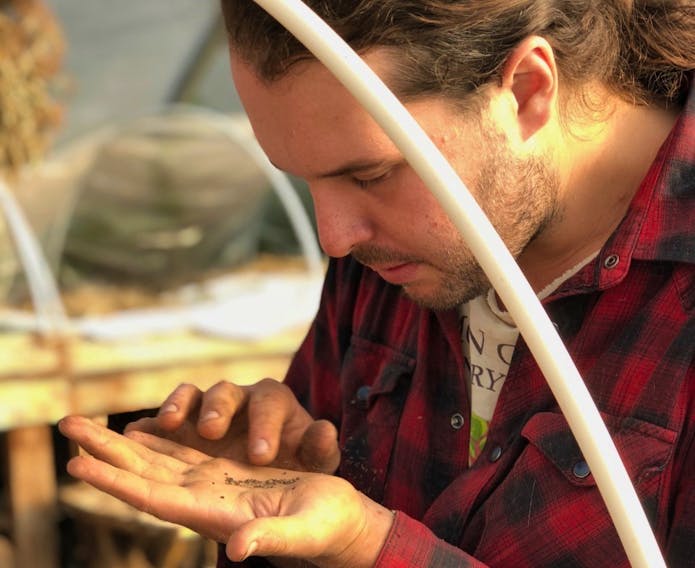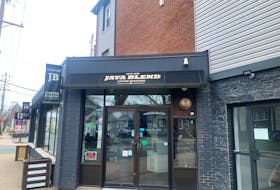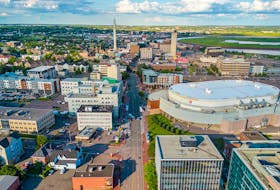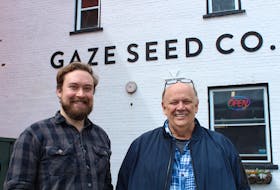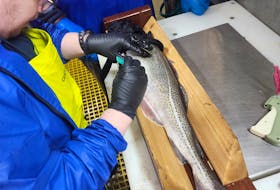HALIFAX, N.S. - On Monday, Stephanie Warr was doing predictive modelling on future human behavior based upon the available data from a new trend and her experience with the subject.
She was deciding what to plant.
“Probably 1,000 per cent,” said Warr of the increase this season in demand for seeds for home gardens. “Seeds are the new toilet paper.”
The owner of Twisted Brook Farm in South Williamston grows vegetables for sale at the Annapolis Royal Farmers Market and from her roadside stand.
She also produces organic heirloom seeds that end up in home gardens and is a board member of Seeds of Diversity Canada, a Kitchener, Ont.-based charity that runs an heirloom seed bank and promotes both seed sovereignty and biodiversity in what we plant.
Most Nova Scotians probably haven't heard of seed sovereignty. But they'll be learning its relevance this week as they rush to garden centres that Premier Stephen Mcneil and Dr. Robert Strang announced on the weekend they'd allow to open and try to find broccoli seeds.
Because just like toilet paper, seeds come to us via a supply chain whose origins are largely outside this province.
“Some companies have run out of inventory, others have temporarily shut down their sites to catch up on orders, some have prioritized seed for commercial farmers over home gardeners in order to support food security,” said Stephanie Hughes, an Atlantic Canadian program manager for Seedchange.
Her non-profit teams up with small farmers to save, share and breed new seeds, amongst other agricultural extension work. Seeds are a passionate topic for farmers and a relatively small group of home garden enthusiasts. Normally, that's it. They get together for Seedy Saturdays in Bridgewater and Truro in February and March to sell and trade seeds while dreaming of spring.
“COVID-19 has demonstrated to us is that we're not in a good position when disasters strike with our seed availability,” said Hughes.
That wasn't a surprise to the seed community. But it is to the rest of us who just thought we'd plant a garden this year because of the pandemic and all.
Dark galaxy, Wentzell tomato, ground cherry – those who cherish things that grow tend to be poetic types.
Charmingly named tomatoes and other “weird vegetables” are Owen Bridge's bread and butter.
The owner of Nictaux-based Annapolis Seed Company, Bridge has two acres growing heirloom and rare varieties to sell to Nova Scotian gardeners. He also has four other farmers producing seeds for him.
Bridge sells seeds you won't find at Walmart.
The Wentzell tomato, for instance, is a large pink beefsteak style tomato developed by growers in the New Germany area of Nova Scotia 150 years ago.
“Beets, parsnips, dry beans, high calorie storage crops are what people want this year,” said Bridge. “If you're planning to grow food for your community, that's the way to do it.”
By the end of March he was sold out of much of his supply of seeds for high calorie storage crops.
That to him speaks to how this pandemic has affected our thinking. Our first reaction was to rush the grocery stores and stock up on wipes, toilet paper and non-perishables.
The more sober second thought that came with the quarantine was, ‘I should probably plant a garden this year.'
Naturally, Bridge, Hughes and Warr all consider this a wholesome sign. But it raises questions for them.
Will we also plant gardens next year? If so, what will we be planting?
What should they plant now to produce the seeds that will catch the fancy of a population dealing with the second spring of a pandemic?
Will we (the consumer) have found that potatoes were still available and relatively cheap at grocery stores and farmers markets but also discovered that immense world of flavour to be found in a tomato not shipped from California?
Warr and Bridge are pretty certain on one thing — people will find they like keeping a garden. So they're increasing production.
Bridge expects to reach out to more small farmers like Warr, who he dubs "good seed people," to produce seeds as well as vegetables for sale under his company's banner.
“The trend is to people growing more food and being connected to the land,” said Bridge. “This pandemic has made those connections even stronger. I don't think it's going to stop.”

